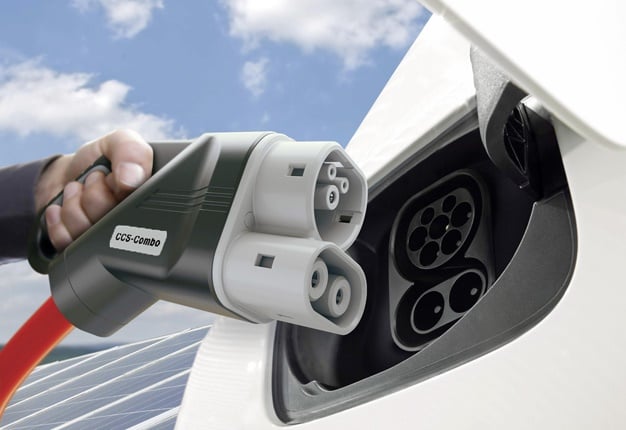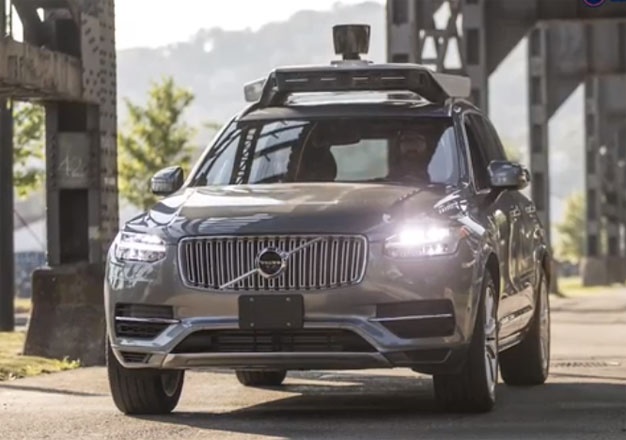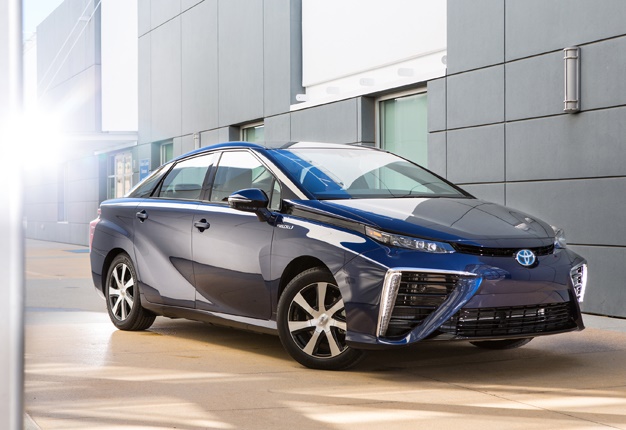
Self-driving cars, e-hailing taxis, autonomous trucks... these were some of the themes raised at the 2019 Southern African Transport Conference held in Pretoria on Monday.
Transport Minister Fikile Mbalula raised several concerns and also highlighted the way forward for South Africa.
Mbualula posed the question of whether SA was ready for emerging trends and technology in the rapidly growing future of mobility.
"The speed of diffusion compels companies and governments to change from the 'business as usual' way of doing things," he said.
"For instance, government had to make speedy provision to regulate e-hailing. It also provided temporary permits for autonomous vehicles during the Federation International de L’ Automobile (FIA) conference this year at Sun City. The very fast pace and frequency at which new technologies emerge, and their diffusion across the world, leave the question of whether Southern Africa is ready, or whether it will ever be ready.
"My concern with the pace is that we must not be relegated to catching up. We must be part of the innovators. We must not only respond to what others have produced as dictates, because that will often give rise to additional challenges."
Is South Africa ready to handle self-driving cars? What do you think are some of the major issues facing SA's roads and auto industry? Email us
Major 'disruptors' to the car industry
Research and development funding had to be prioritised by the sector, especially governments, Mbalula said.
On the negative side, the revolution would need a broader discussion of a "Transition Process", as the disruptions would entail fewer employees per unit of profit generated.
Innovations of technologies would bring about structural unemployment, which may be resolved if workers were reskilled.
Driverless trucks in SA?
Mbalula said: "If, in South Africa, competition for employment in the trucking business could generate violence amongst the people, what would the squeeze by driverless trucks do?
"New technologies will fundamentally change the nature of work across industries. Southern Africa needs to mitigate against additional unemployment, income and gender inequality.
"Acceptance of driverless cars is still a dilemma to many potential customers. Automated systems may fail, and are susceptible to cyber-attacks. There is a risk of misusing the generated private data."
Does SA have the necessary infrastructure to deal with self-driving vehicles?
Mbalula continued: "Construction of infrastructure, such as that which relates to autonomous vehicles, is very expensive – this is an issue I would like SANRAL, RTMC, RTIA and all our entities across modes to be seized with. Government planning and strategies must be proactive and actively engage with these issues.
"This dilemma is the reason this gathering is particularly important, as it requires that government, business, academia, and civil society - local and international - to work together to understand and adapt to the emerging transport technologies and trends."
New policies, laws needed
Government’s role was to speedily come up with new policies and laws that would render transport disruptive technologies beneficial to all, and easily adaptable to the abruptly changing environments, Mbalula said.
"The different spheres of government have to (for instance) regulate the collection of data, as well as determine what can be shared and what remains private. The government is therefore committed to making a significant impact in reducing GHG (green house gas) emissions, by addressing the significant contribution of transport to national total emissions, through the implementation of the Green Transport Strategy (GTS). The strategy aims to minimise the adverse impact of transport on the environment, while addressing current and future transport demands.
"As a stepping stone, as government, we need to actively promote investment in the production of biogas, the use of Compressed Natural Gas (CNG), Liquid Natural Gas (LNG), as well as fuel cell and solar powered Electric Vehicles (EVs).
"In addition, there is currently no policy or regulatory framework that determines the requirements, norms and standards for cleaner fossil fuels in South Africa.
"There is also no policy or incentive scheme that rewards users of cleaner fuels and cleaner fossil fuels. This is perhaps an area we need to pay particular attention to across government."
Recent transport technologies are evolving at such a rapid pace, the future modes of transport can be defined as those transport inventions that will be developed in the future or are currently under development, such as:
• Air-propelled trains;
• Flying drone passenger cars;
• Dual-mode transportation systems;
• Passenger-autonomous vehicles, and;
• Hyperloop.
These kinds of "newer" modes being introduced in the transport sector, would require operational regulations, as they would also need to be mandated to use clean, green, and safe energy sources as alternatives.
It was vital that transport regulations be revised to accommodate technological innovations. Hydrogen may be produced on a large scale using water, coal, natural gas or plant matter. Thus, much as the final product involves lesser levels of pollution, the benefits are watered down if production uses fossil fuels.
Image: Quickpic
Hydrogen fuel cell technology was advantageous in that it had a low carbon footprint - therefore contributing to cleaner air and better health for the South African citizenry. It also involves minimal noise when used in fuel cells, the minister said.
What does the Southern African Transport Conference propose as solutions to these problems?
"This certainly calls for the strengthening of government’s contribution to the work of the SATC," Mbalula said.
"This should entail continuous, if not frequent interactions even at the level of the Board to share views on matters of common interest. This will lead to qualitative conversations on matters that require further scrutiny and interrogation by academics and transport researchers for purposes of evidence-based choices and trade offs in the policy formulation process.
"These are our times. These are our challenges. We can only find solutions to these disruptive technologies, and we can never turn back from tackling these challenges head-on."




 Publications
Publications
 Partners
Partners













